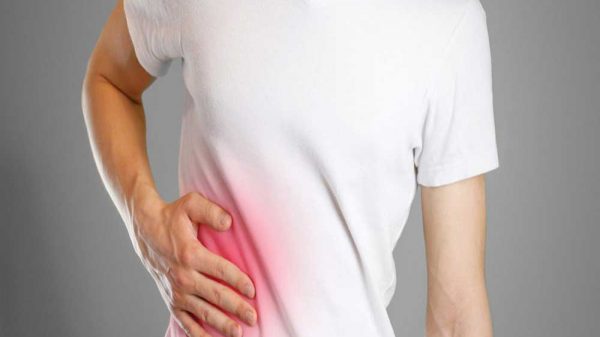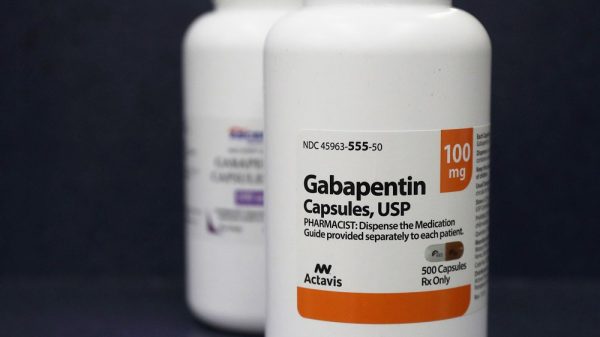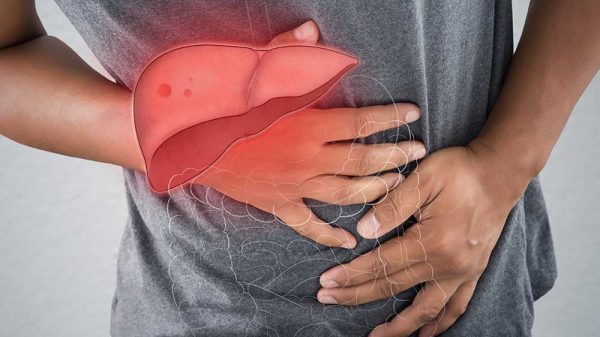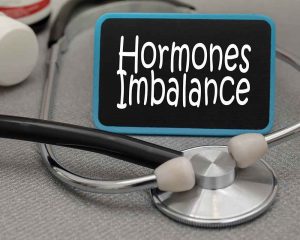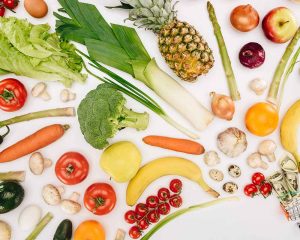You may be familiar with pineapple as the vibrant yellow fruit that is arguably sweet enough to satisfy even the strongest of sugar cravings. Beyond its tropical appeal and sweet flavor, pineapple is filled with fiber and vitamins, as well as a complex of enzymes called bromelain. So, if you are a fan of pineapple, you are in luck. Consuming bromelain benefits your heart, digestive system, and immune system. Plus, according to science, bromelain may even be a healthy addition to the fatty liver disease diet plan.
Bromelain: The Pineapple Enzyme(s)
Before we dive into the numerous health-promoting benefits of bromelain, let’s find out what bromelain actually is.
Though it’s commonly mistaken for a single enzyme, bromelain encompasses a group of eight enzymes that break down proteins. Bromelain is found in the pineapple plant, which holds the scientific name Ananas comosus. More proteolytic activity is found in the bromelain collected from pineapple stem in comparison to the fruit, though the enzyme composition is similar. (1)
Bromelain as Part of the Fatty Liver Disease Diet
Fatty liver disease usually does not occur in isolation and is instead intertwined with several other systemic issues and conditions including high blood pressure, metabolic syndrome, and inflammation. Mitigating associated conditions is a huge part of successfully reversing fatty liver disease.
Bromelain may operate synergistically with the fatty liver disease diet plan to lower inflammation, promote digestive health, and improve associated conditions.
Here are three major health benefits of bromelain.
1. Aids Protein Digestion and Absorption
Consuming bromelain before meals can help your body make the most of the protein you’re getting through your diet. Protein is challenging to break down. The digestive system is already equipped with heavy-duty tools designed for protein metabolism, including stomach acid and proteolytic enzymes such as trypsin. But help from natural digestive enzymes like bromelain provides extra support.
The bromelain enzymes are categorized as proteases, which means they target the biochemical bonds that help proteins maintain their structure. All proteins, including dietary protein, are comprised of amino acids that are held together by peptide bonds.
The digestive process is crucial for converting dietary protein into a useable form: free amino acids. The body is only able to absorb free amino acids, leaving intact protein particles to pass through to the lower intestine in preparation for excretion.
More free amino acids mean that more essential amino acids are available to be utilized by your liver and sent throughout your body. Essential amino acids are those that we must obtain through the foods we eat. Optimal ratios of essential amino acids help facilitate many critical biological processes, including appropriate insulin response, glucose uptake, muscle synthesis, and mitochondrial function.
Research also shows the importance of certain amino acids – like branched-chain amino acids – in preventing progressive liver damage, muscle wasting, and other complications in patients with liver cirrhosis. (2)
Interestingly, you may have actually witnessed the proteolytic activity of bromelain without even knowing it. Have you heard of the “cracked tongue” that some people get when eating fresh pineapple? This peculiar phenomenon is often attributed to the acidic nature of pineapple fruit, though it actually demonstrates the enzymatic activity of bromelain. Luckily, this condition is temporary, resolving itself shortly after you’re finished eating pineapple.
Bromelain is so effective at breaking down protein that it is even used as a meat tenderizer for steaks! In addition to bromelain, other natural protein-digesting enzymes include actinidin found in kiwi and papain found in papaya.
2. Supports Heart Health
Cardiovascular disease is a particularly detrimental condition that often occurs in conjunction with fatty liver disease. Factors contributing to fatty liver disease also contribute to cardiovascular disease.
For example, high blood pressure is a result of a high-fat, high-sodium diet and is compounded by stress. Over time, high blood pressure can damage arterial walls. A hypercaloric, high-fat diet also thickens the blood and contributes to high cholesterol, increasing the risk of blood clots and atherosclerosis, which refers to the formation of plaques. Over time, these conditions may lead to stroke or heart attack. Individuals with risk factors for cardiovascular disease are often prescribed a blood thinner like Coumadin and cholesterol medications like statins.
Bromelain may play a role in lowering blood pressure and dissolving cholesterol plaques, as well as lowering the risk of blood clots. Bromelain’s anticoagulant activity is largely due to its interaction with fibrin, a blood protein responsible for facilitating the formation of clots. The proteases in bromelain, in addition to targeting the peptide bonds in dietary protein, also break down the peptide bonds in fibrin. If fibrin activity is inhibited, blood clotting occurs less readily. (3)
3. Fortifies the Immune System
Inflammation describes aggravation of immune response throughout the body and is a culprit in nearly all illnesses, including fatty liver disease, nonalcoholic steatohepatitis, metabolic syndrome, and even cancer. A wealth of scientific evidence demonstrates the anti-inflammatory effect that bromelain has on the immune system.
Research shows that bromelain plays a role in inducing tumor cell death while also preventing cancer metastasis to other tissues. (1)
In one particular study, bromelain effectively exhibited antiplatelet activity that reduced tumor growth. Antiplatelet activity is critical for allowing the immune system to target malignant tumor cells. (4)
Moreover, clinical studies have suggested that bromelain exhibits anti-inflammatory activity that quells inflammation in cases of osteoarthritis and rheumatoid arthritis. In fact, scientific evidence suggests that the efficacy of bromelain for these conditions is comparable to that of non-steroidal anti-inflammatory drugs (NSAIDs) like ibuprofen. (5)
In a study published in Clinical Rheumatology, researchers administered a mix of bromelain and other enzymes to patients with osteoarthritis of the knee. Results revealed that the enzyme mixture containing bromelain rivaled efficacy of the NSAID diclofenac. (6)
The anti-inflammatory properties exhibited in bromelain’s impact on cancer growth and autoimmune diseases also have implications for wound healing, asthma, and allergic conditions like chronic rhinosinusitis and acute sinusitis.
It could be surmised the systemic effect of bromelain may have implications for attenuating liver inflammation, though research is needed to show this.
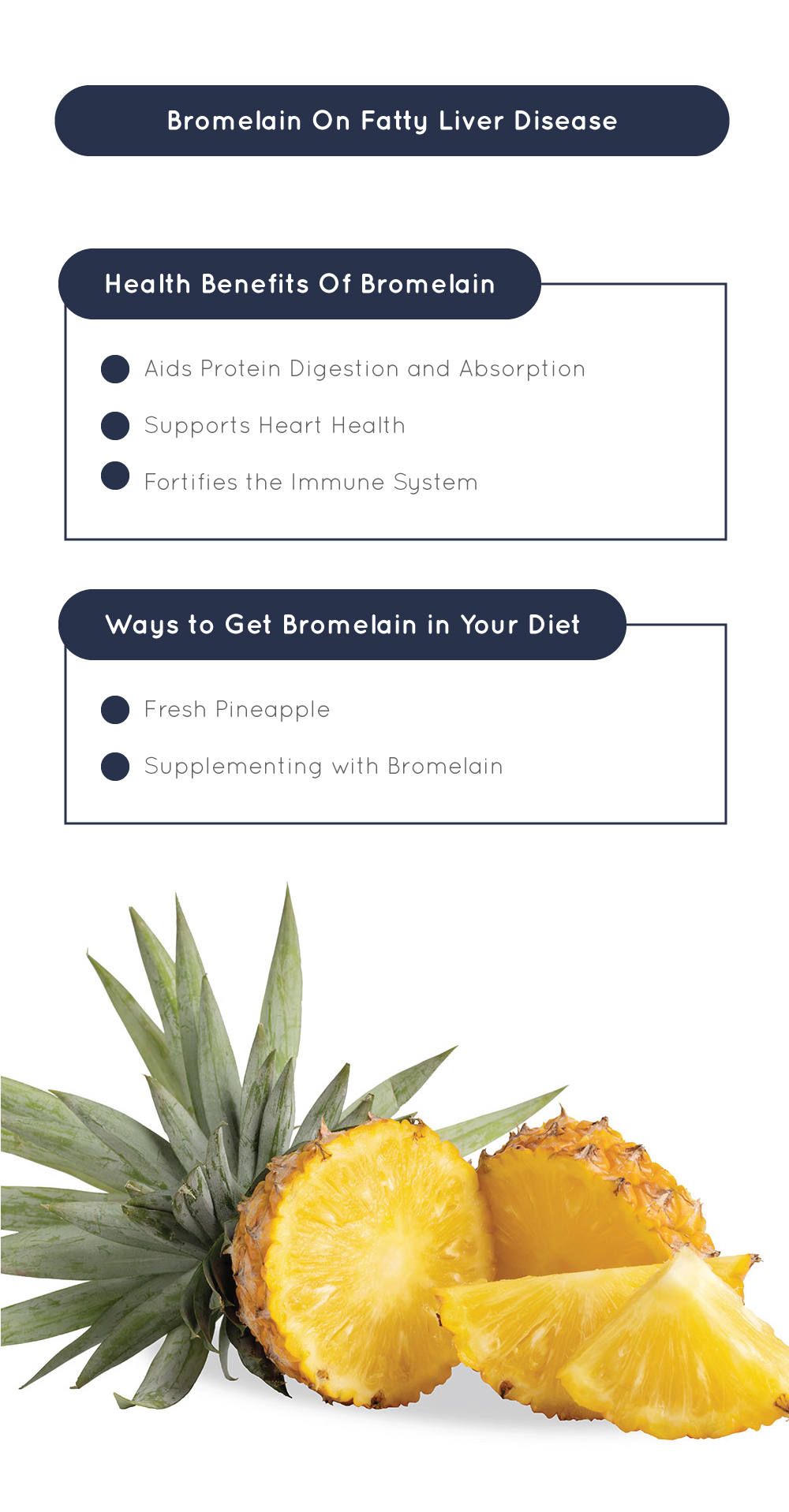
Ways to Get Bromelain in Your Diet
You can incorporate bromelain into your diet naturally or as a supplement, though there are small differences between these two different methods of consumption.
Fresh Pineapple
Bromelain is highly effective when obtained from fresh pineapple fruit – the yellow part that we are accustomed to eating. The enzymatic composition of the bromelain in pineapple flesh varies slightly in comparison to the bromelain in the stem, though biological activity is similar.
Research shows that even fresh pineapple juice contains biologically active bromelain. A study conducted at the Department of Pathology at the Duke University Medical Center in Durham, North Carolina, evaluated the efficacy of bromelain derived from pineapple juice. Researchers administered fresh pineapple to mice with colitis over a period of approximately six months. Results revealed that fresh pineapple juice helped attenuate colonic inflammation when compared to boiled pineapple juice that lacked active bromelain. (7)
Supplementing with Bromelain
Bromelain is present in both the pineapple stem and pineapple fruit. Usually, when taken as a supplement, bromelain is concentrated from pineapple stem. Dietary supplements are usually available in the form of a capsule or liquid pineapple extract. Sometimes, bromelain is paired with other anti-inflammatory agents like quercetin and turmeric.
A Few Precautions
If you have allergic reactions to fennel, grass pollen, or cypress pollen, you may also have an allergy to pineapple. Before adding bromelain to your diet, make sure that pineapple is compatible with your immune system.
If you’re considering incorporating bromelain supplements into your regimen, make sure to choose a high-quality brand. Though bromelain supplements are generally regarded as safe with few side effects, always consult your health care professional to make sure the supplements you take support your specific health conditions and individual biochemistry.
Finally, the health benefits of pineapple juice may make it appealing to drink pineapple juice regularly. However, before you start downing pineapple juice for bromelain, keep in mind one caveat: Pineapple juice contains all of the sugar from pineapple, only without the fiber.
The fiber present in the whole fruit is critical for slowing down the digestion and absorption of sugar in pineapple. When the fiber is removed, the body rapidly breaks down the sugar and channels it into the bloodstream. This, in turn, spikes your blood sugar. Individuals with insulin resistance and diabetes must be cautious when consuming juices. Check with your healthcare provider or nutritionist to determine the amount and frequency of juice consumption that benefits your health.
Conclusion
In summary, bromelain is a natural enzyme complex that has many therapeutic applications. Bromelain health benefits range from supporting protein digestion to soothing systemic inflammation. When added to a diet rich in vegetables, fruits, legumes, whole grains, and lean meats, bromelain may help your body heal from fatty liver disease.
References:
(1) https://www.ncbi.nlm.nih.gov/pmc/articles/PMC4998156/
(2) https://www.ncbi.nlm.nih.gov/pmc/articles/PMC6088198/
(3) https://www.ncbi.nlm.nih.gov/pmc/articles/PMC3529416/
(4) https://www.ncbi.nlm.nih.gov/pubmed/21559575/
(5) https://www.ncbi.nlm.nih.gov/pmc/articles/PMC538506/
